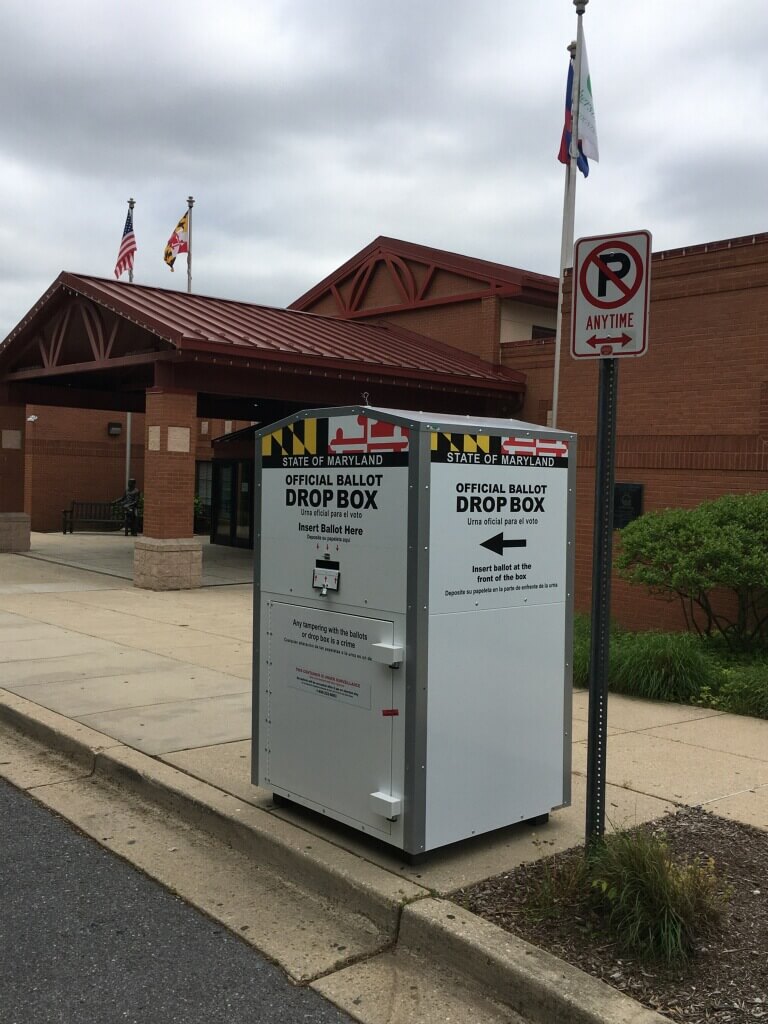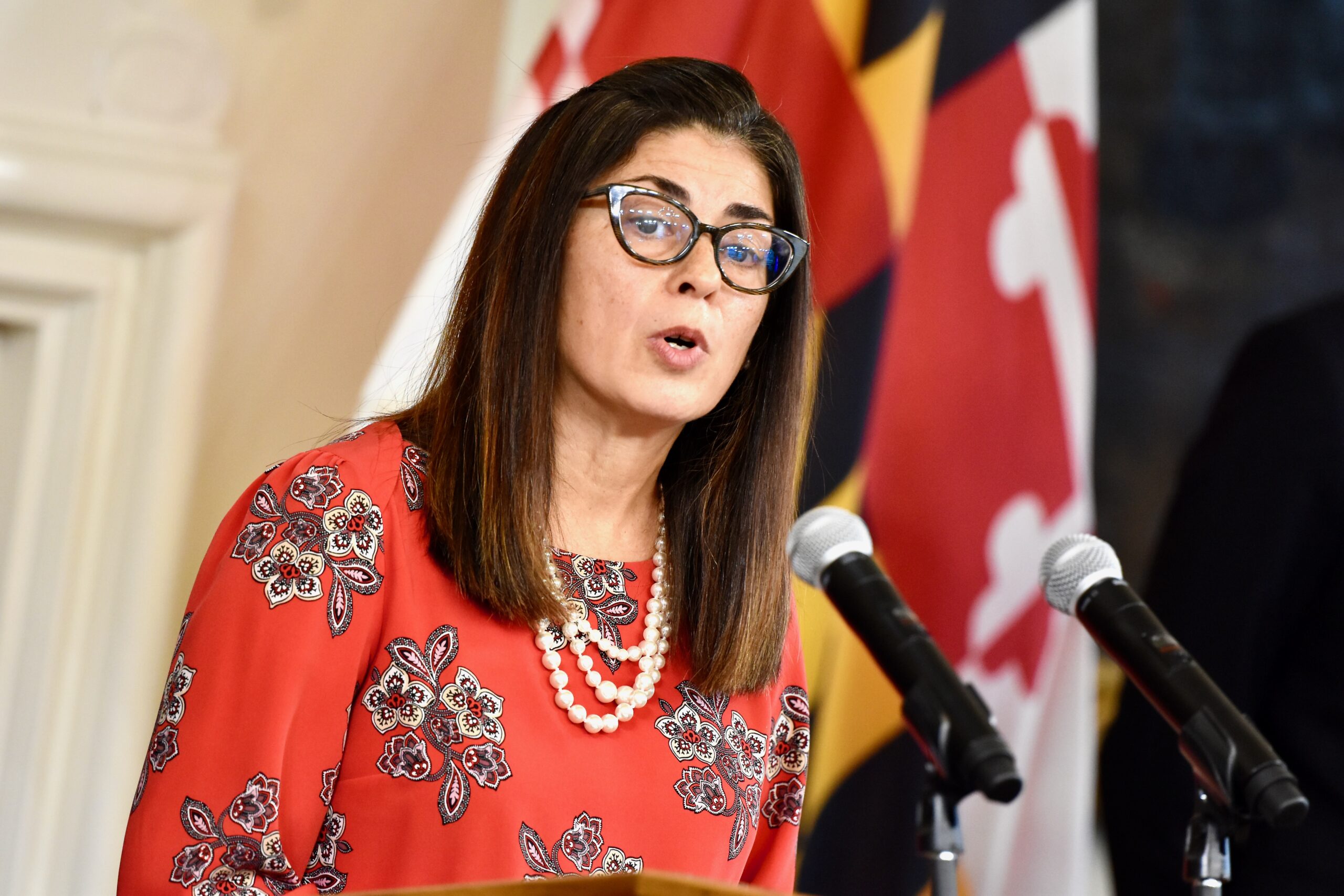Bills Would Expand Ballot Drop-Boxes, Allow Voters to Automatically Receive Absentee Ballots

After Maryland voters overwhelmingly embraced mail-in voting last year, state legislators are looking to permanently expand and improve the state’s absentee ballot system.
House Bill 1047 and House Bill 1048, both sponsored by Del. Jheanelle K. Wilkins (D-Montgomery) would make mail-in voting a permanent and easily accessible option for Marylanders. Together the bills would make it easier for Marylanders to track their mail-in ballots and would establish a way for voters to chose to get absentee ballots automatically.
During a hearing in the House Ways and Means Committee Tuesday afternoon, Wilkins and advocates touted the measures as a way to reach portions of the electorate who often find the voting process difficult, including people with disabilities.
HB 1047, the Mail-in Voting Enhancement Act, would make at least 300 ballot drop-off boxes permanent fixtures around the state, establish a more robust ballot tracking system and provide for curing rejected mail-in ballots.
About half of Maryland voters opted to receive ballots at home rather than vote at an in-person polling center during the November election. Wilkins said ballot drop-boxes were “welcomed and enjoyed” by those voters, with more than a million voters submitting their ballots at the boxes.
The bill requires state election officials to come up with an “equitable” formula for distributing drop-off boxes across the state ― and requires that those boxes are compliant with the federal Americans with Disabilities Act.
Ben Jackson, staff attorney for Disability Rights Maryland, said some voters with disabilities struggled with inaccessible ballot drop-off boxes during the 2020 general election.
In addition to expanding drop-off box access, the bill would give voters access to information about the status of their absentee ballot — either via the State Board of Elections website, by postcard, email or text message.
That information would include a step-by-step overview of delivery and return of the absentee ballot, expected delivery date of the ballot and whether the ballot was marked as undeliverable.
The bill would alter the requirement that an absentee ballot be rejected if the voter didn’t sign the oath on the ballot envelope. Instead, ballots would be rejected if the oath wasn’t signed and the voter “failed to correct the omission before the conclusion of the canvass.”
That change would require the State Board of Elections to adopt regulations that require local boards to notify voters about problems with an absentee ballot that might be rejected, but that could be corrected by the voter. And the state board would also have to adopt regulations that require local election boards to give voters a chance to correct those problems.
HB 1048 would let registered voters opt-in to an absentee ballot list so they wouldn’t have to apply for a mail-in ballot before every statewide election.
Voters would be removed from the list if they are removed from the state voter registration list, if any mail sent to them by election officials is returned as undeliverable, or if they don’t return an absentee ballot for two consecutive statewide general elections.
Wilkins’ bills to permanently expand mail-in voting have widespread support from voting rights and disability advocates, who say those measures would increase voter turnout. The state saw unprecedented absentee ballot use — and high turnout — during the 2020 primary and general elections.
“All of the components in the bill were needed long before the 2020 election,” Joanne Antoine, executive director of Common Cause Maryland, said.
The proposal for an opt-in absentee ballot list contrasts with other reform efforts in the House. Two bills, one sponsored by Del. Julian Ivey (D-Prince George’s) and Del. Shaneka T. Henson (D-Anne Arundel), and one sponsored by Del. Jon S. Cardin (D-Baltimore County) would also require the automatic mailing of ballots to all registered voters.
Effort to increase student and military voter turnout passes
In a 104-23 vote Tuesday, the House overwhelmingly approved a bipartisan effort to increase ballot access for student and military voters.
House Bill 156, sponsored by Del. Eric G. Luedtke (D-Montgomery) would create formal processes for “large residential communities” such as universities, military bases and senior communities to request on-site polling places. It would also require public higher education institutions to give college students excused absences to vote.
The proposal would require public and private higher education institutions to create websites that link to voting information. Luedtke sponsored a similar bill last year, but it was one of many that didn’t advance during the shortened 2020 legislative session.
Last year’s bill focused on increasing voter turnout among students, but Luedtke said in January that Del. Michael Griffith (R-Harford) convinced him to include provisions for overseas military and senior citizen voters. If the bill is enacted, military members would be allowed to register to vote online using their Department of Defense Common Access Cards.
The bill will now head to the Senate for consideration.




 Creative Commons Attribution
Creative Commons Attribution